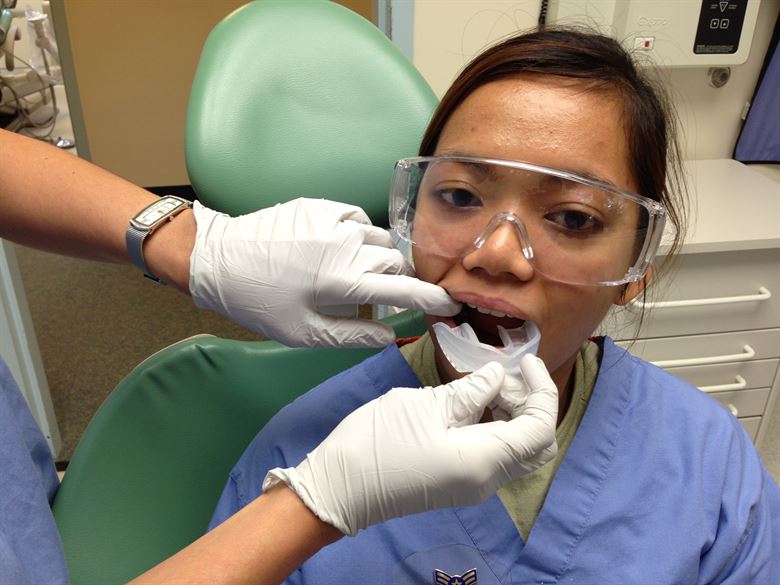5 Common Dental Problems for Adults
What’s the one thing people notice most about you?
Your smile, that’s what. The wonders that a simple smile can work are amazing. A random stranger smiling at you on the commute back from work may be enough to make your day. Putting a smile on the face of a loved one is the best feeling ever. Even better than saving money on the best Frontier online deals, in my humble opinion. Yet as we grow older, our pearly whites are prone to some dental problems based on our habits. This blog lists down five of the most common adult dental problems these days:
Halitosis
Halitosis or bad breath is more common than most people realize. Most people also don’t realize that bad breath is persistent 85% of the time due to a dental condition. Bad breath can be caused by a variety of dental issues. Some of these are cavities, gingivitis, dry mouth, oral cancer or bacteria. Using a mouthwash deals only with the symptoms, in this case, bad breath, leaving the dental problem to fester. So if you’re persistently faced with a bad breath problem, be sure to consult a dentist as soon as possible.
Sensitive Teeth
Tooth sensitivity is another common dental issue people complain about. Tooth sensitivity is symptomized by pain or discomfort in the teeth from hot drinks, cold air, cold drinks etc. In some cases, you may even experience discomfort while doing simple hygiene like brushing or flossing your teeth. Luckily, there are treatments to deal with sensitive teeth. Sensitive teeth can also be caused by an abscess or a chipped or cracked tooth. In such cases, it’s best to consult a dentist at the earliest. Cracked teeth may worsen to the point where you will have to get them removed. An abscess can result in an infection in your jawbone. If you have noticed a sudden sensitivity in your teeth, make a dentist’s appointment right away.
Mouth Sores
Though not as common as bad breath and sensitive teeth, sores can be an annoying problem when they do occur. There are many types of mouth sores, but unless they last more than 2 weeks, they’re not really worrisome. The most common type are canker sores that usually occur inside the mouth instead of the lips. Canker sores are not contagious and are only a concern if they don’t disappear within two weeks. Cold sores are usually a symptom of herpes and are very contagious. They will continue to come and go with time but unfortunately are not curable completely. Sores can also be caused by a yeast infection in the mouth called oral thrush. It’s commonly seen in infants but is also found in adults who:
- Wear dentures
- Have diabetes
- Undergoing cancer treatment
So if you have a sore that has been persistent for 2 weeks, its best to consult with your dentist as soon as possible.
Oral Cancer
Oral cancer is one of the most serious and deadly oral diseases known to medical science. It affects millions of people everywhere around the globe. In fact, estimates by the Oral Cancer Foundation suggest that in the US, a person dies every hour from oral cancer. However, the disease is curable if diagnosed and treated correctly during the early stages of its development. The largest demographic affected by oral cancer is adults over forty years of age. Tobacco (especially chewing tobacco) and alcohol are the two greatest factors that substantially increase the risk of oral cancer. HPV, a sexually transmitted virus symptomized by warts, also increases the risks of oral cancer. Oral cancer symptoms include:
- Mouth sores
- Lumps in the mouth
- Rough areas in the mouth
- Bite changes
- Chewing difficulty
- Tongue/jaw movement inhibition
Regularly visiting your dentist is one good way you can identify this disease before it reaches the untreatable stage. At your next appointment, discuss with your dentist if an oral cancer exam is part of your routine checkup. If you notice any of the symptoms listed above, schedule an appointment with your dentist right away.
Gingivitis
Gingivitis, also known as periodontal disease, or more commonly, gum disease, infects your gums surrounding your teeth. It is a big cause behind adults losing teeth as they age. Some scientific studies suggest a possible link between gum disease and heart disease. All age groups are at risk of contracting gingivitis, but it is most commonly found in adults aged 30 and above. The single biggest contributing factor to gingivitis is smoking. Diabetics and people suffering from dry mouth are also at higher risk of contracting gum disease. Gingivitis symptoms are distinctive, including halitosis, sensitive teeth, inflamed or bleeding gums and painful chewing. Gingivitis is the first stage of gum disease, followed by periodontitis. Luckily, you can stay safe by brushing twice a day as well as flossing on a daily basis. But these are more preventive measures than cures. If you feel you have contracted gum disease, its advisable to visit your dentist as soon as possible.
The field of dentistry is a well-explored branch of science. Therefore, usually, I take my dentist’s advice at face value. However, it still doesn’t hurt to use my Frontier internet to do a quick search of any symptoms I might be experiencing. Information doesn’t hurt, especially when it concerns something as important as your teeth. Practice good oral hygiene and visit your dentist regularly!
Author Bio:
Ian Morris: Ian isn’t the biggest fan of summer, but he’s doing best to embrace the hot weather and heat. You can find him in his kitchen trying out new chill recipes, playing basketball, writing about what he loves the most “The world”, or cheering for his favorite football team.


Leave a Reply